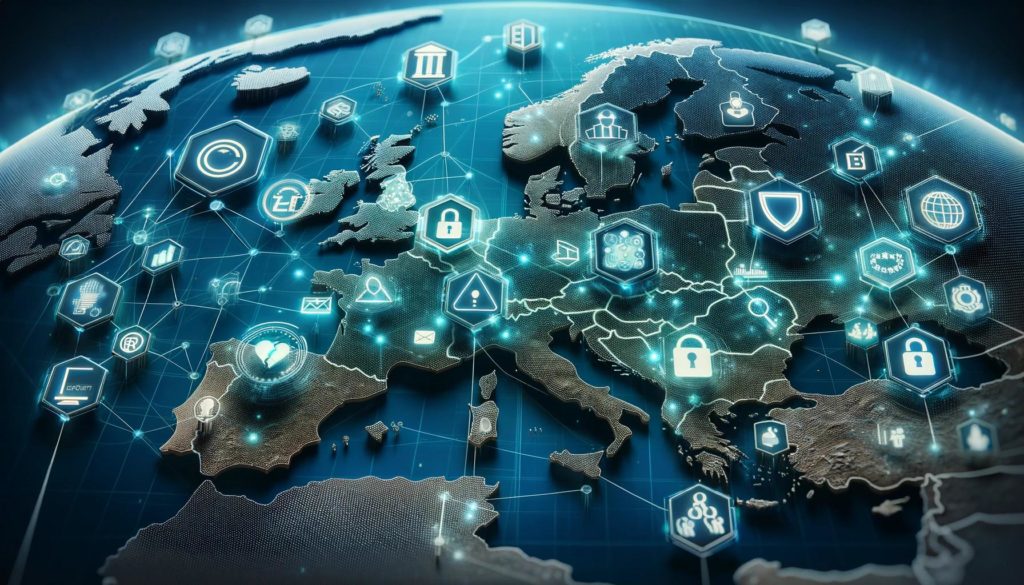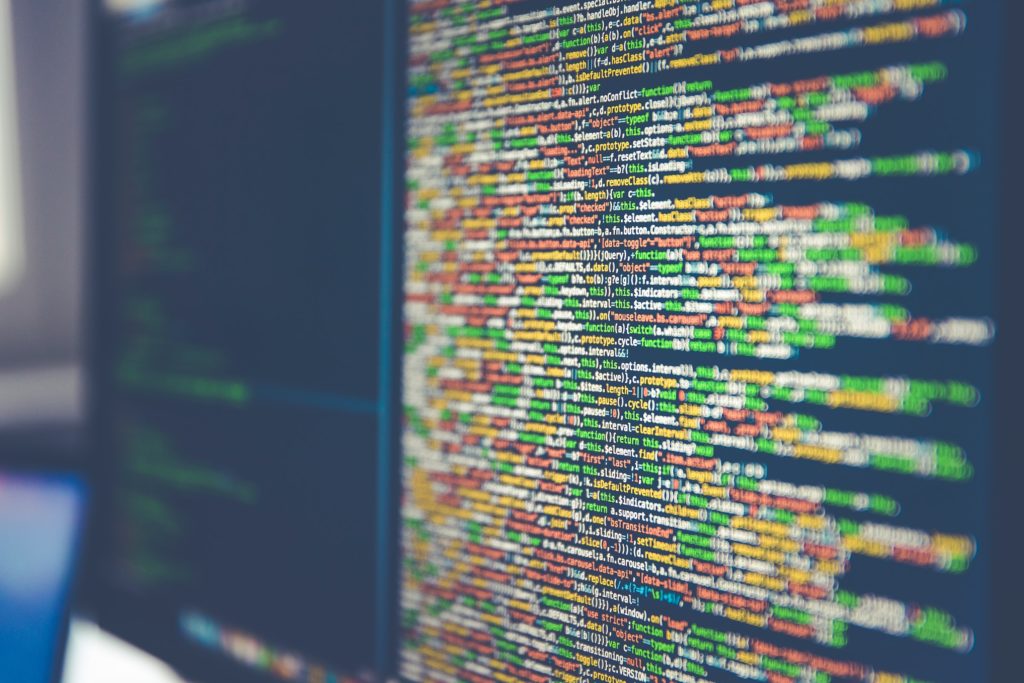In an era of increasing cyber threats, protecting personal data has become a priority for companies worldwide. Effective data management requires the implementation of modern strategies and tools. Let’s explore practical approaches to data protection in the digital age.
Data Audit and Inventory
The first step in effective data management is conducting a thorough audit and inventory. Companies need to know what data they have, where it’s stored, and who has access. Regular audits help identify potential security gaps and minimize the risk of data breaches.
Data Encryption
It encryption is one of the most effective ways to protect information. Data should be encrypted both in transit and at rest to prevent unauthorized access. Modern encryption algorithms ensure that even if data is intercepted, it remains unreadable to third parties.
Access and Identity Management
Controlling access to data is crucial for its protection. Companies should implement the principle of least privilege, meaning employees only have access to the data necessary for their roles. Multi-factor authentication (MFA) should also be used to enhance security.
Regular Updates and Security Patches
Software used for data storage and processing must be regularly updated to protect against the latest threats. Companies should track new security vulnerabilities and promptly implement available patches.
Employee Training
Even the best technologies cannot replace well-trained employees. Companies should regularly train their teams on best practices in data protection. Employees need to be aware of threats like phishing and know how to respond.
Using Threat Monitoring and Detection Tools
Network monitoring and threat detection tools can help quickly identify and respond to suspicious activities. These systems use advanced algorithms and artificial intelligence to analyze network traffic and detect potential threats in real-time.
Conclusions
Protecting personal data in the digital age requires a comprehensive approach that combines technology, procedures, and employee education. Regular audits, data encryption, access management, software updates, training, and advanced monitoring tools are essential to effectively protect data from increasing cyber threats. Companies investing in these strategies not only secure their data but also build customer trust and comply with legal regulations, which is crucial in today’s world.
Every action we take online, from browsing websites to shopping online, is recorded thanks to small text files known as cookies. These inconspicuous tools are the foundation of personalization and advertising on the Internet, but they also raise serious privacy concerns.
The General Data Protection Regulation (GDPR) came into effect in the European Union in May 2018. It aimed to strengthen users’ control over their personal data. This article examines if users really control their data in the context of “GDPR cookies.” Furthermore, it explores the practical challenges and implications of these regulations.
A New Era of Privacy and GDPR Cookies
GDPR obliges companies to obtain explicit consent from users to process their data, including the use of cookies. Users can now choose which cookies to accept and which to reject, except for those essential for the site’s operation. This step increases “user data control” and helps users manage their online privacy. Moreover, it makes companies more transparent about their data collection practices. This fosters a trust-based relationship with users.
Consent for Cookies: Reality vs. Expectations
Although cookie banners that appear during the first visit to a site are intended to inform users and collect their consent, they are often designed in a way that can be misleading. Users are frequently overwhelmed with complicated information, which calls into question whether their consent is truly informed. This raises questions about the real “consent for cookies” and whether it complies with the intent of GDPR.

Websites vary in their approach to cookie consent. Some sites offer a detailed menu where users can precisely specify which cookies they accept. Other sites minimize the choice, which can lead to automatic acceptance of cookies. This shows how “user data control” is implemented differently across various websites.
Pressure Tactics and “Consent Fatigue”
The phenomenon of “consent fatigue,” where users, tired of being asked for permission, start to accept everything without thinking, is particularly dangerous. This can lead to unwanted consent for extensive online tracking and behavioral analysis. Such outcomes are contrary to the idea of “online privacy.”
Although GDPR theoretically increased users’ control over their data, the practical implementation of these regulations leaves much to be desired. It seems crucial to not only further refine the regulations but also develop technologies that are privacy-oriented from the outset. Additionally, educating users about the importance of their choices and the potential consequences is essential. This combined approach will better protect online privacy and ensure that user consent remains meaningful.
In May 2018, the introduction of the General Data Protection Regulation (GDPR) initiated a groundbreaking moment for the protection of personal data in the European Union. GDPR not only revolutionized the way personal data is protected within the EU but also had a significant impact on companies worldwide, promoting a uniform data protection standard across all member states.
Harmonization Leaps: From Fragmentation to Coherence
Before GDPR, diverse regulations in the EU challenged international enterprises. This created legal uncertainty and barriers to activity. GDPR introduced uniform rules, simplifying data management for companies. It also enhanced privacy protection for EU citizens.
Strengthening Citizens’ Rights and Operational Transparency
GDPR strengthened data subjects’ rights, introducing key mechanisms. These include the right to be forgotten, data access, and rectification. These initiatives boosted control over personal data. They also promoted transparency in organizational operations.
Global Impact of GDPR: Beyond EU Borders
GDPR significantly impacts not only enterprises operating within the European Union but also those outside its borders. Companies from outside the EU that process the data of EU citizens for offering goods or services, or monitoring their behavior, must also comply with GDPR. This global reach makes GDPR a de facto international standard for data protection.
The introduction of GDPR inspired many countries to review and improve their data protection regulations. For example, the California Consumer Privacy Act (CCPA) and the General Data Protection Law in Brazil (LGPD) draw from GDPR experiences, aiming to raise data protection standards in their territories. GDPR has become a global benchmark for data protection regulations, promoting high standards of personal data protection worldwide.
Enterprises Facing New Challenges
Implementing GDPR required international enterprises to adjust their data protection policies and procedures, which was a challenge for many. However, these initial investments in GDPR compliance will bring long-term benefits, increasing consumer trust and promoting a safer digital environment.
The Future of Data Protection: GDPR as the Standard
GDPR not only unified the digital market in the EU but also raised the bar for personal data protection worldwide. As a living document, GDPR will likely evolve to meet new technological and social challenges, continuing to inspire a global approach to privacy and data protection.

Inspiring Global Standards
GDPR sparked a global discussion on data protection, highlighting international cooperation’s importance. The exchange of best practices is crucial as the digital economy transcends borders. GDPR serves as a model, showing that data protection and individual rights can coexist with innovation and economic growth.
Further Challenges and Opportunities
Although GDPR has established strong foundations, many challenges lie ahead. The development of technologies such as artificial intelligence, machine learning, and the Internet of Things (IoT) poses new privacy and data protection questions for GDPR. In response, EU institutions and supervisory authorities must continually adjust interpretations and guidelines to ensure that GDPR continues to achieve its goals in a rapidly changing technological world.
Education and Awareness: Keys to Success
The key to GDPR’s success is education and raising awareness. It’s vital for both businesses and citizens. Understanding rights and obligations is essential. This builds a culture where privacy is a fundamental right. It should not be seen as an option. Organizations gain a competitive edge by treating data protection as integral. This builds trust and customer loyalty. They see it as part of their business strategy.
Summary: GDPR as the New Standard for Data Protection
GDPR has become a milestone in personal data protection. It established strong, uniform frameworks for Europe. It also inspires changes worldwide. Its impact on global enterprises is significant. It affects regulations in other countries and technological development. This underscores the importance of an adaptive stance towards data protection. A proactive stance is also crucial. We are now entering a new digital era. GDPR will continue to play a key role. It shapes the future of privacy and personal data protection. Operates on a global level. It sets standards for other countries and regions. These countries and regions will strive to meet these standards.
In a world where information is as valuable as currencies, the protection of personal data has transformed from an optional principle to a necessary imperative. Data anonymization emerges as a key guardian of privacy, enabling the safe use of technology’s benefits without compromising individual identities.
The Mysterious Guardian of Privacy: What is Data Anonymization?
Data anonymization is a technique used to transform personal data in a way that prevents the identification of the individuals to whom it pertains. This process allows for the use of data in research, analysis, and strategic decisions while simultaneously safeguarding privacy. Anonymization thus becomes not only a tool for protection but also a key to responsibly and ethically exploiting the potential of the vast data sets we generate every day.
The Roots of Anonymization: A Journey Through History
Data anonymization did not emerge overnight; it is the result of a long evolution of social awareness and legal regulations. This development ties to key acts like GDPR. It changed data protection in Europe and globally. The history of data anonymization moved from simple masking to advanced cryptography. This shows increasing recognition of privacy’s importance and its need for protection
Why is Anonymization So Important?
It has become a focal point for several reasons: from ensuring privacy to complying with global data protection regulations. It’s vital for individual protection and safe data use in many life areas. Anonymization builds trust between users and providers. It creates a secure space for digital interaction and innovation, ensuring each part adheres to the concise sentence structure.

Anonymization in Practice: The Polish Context
Following the path outlined by European regulations, Poland has adopted anonymization as a standard practice in data protection. Understanding anonymization in Polish law is essential for GDPR compliance. In Poland, it’s a legal need and part of corporate culture. It encourages transparency and responsibility in handling personal data. Each part of the explanation is concise and clear, adhering to the requirement.
Key Principles and Challenges of Anonymization
Data anonymization is not just a technical process but also involves a series of challenges: from the risk of re-identification to finding a balance between privacy and data utility. Exploring these issues reveals the complexity behind anonymization and underscores the need for continuous improvement of methods. For anonymization to be effective, it must be thoughtful and adapted to the specific context, requiring ongoing dialogue among experts from various fields.
Future Directions: What Does the Future Hold?
Data anonymization leads in privacy innovation. Yet, what lies ahead in this fast-changing area? AI and machine learning bring new anonymization challenges and opportunities. Anonymization’s future hinges on adapting to changes while balancing innovation and privacy. This revised version breaks down the content into concise segments, each within the specified limit.
Conclusion: Anonymization as a Data Protection Philosophy and Introduction to Nocturno
Data anonymization is more than a technical process; it is a philosophy of privacy protection in the digital world. Understanding its fundamentals, significance, and challenges is key for anyone involved in personal data processing. As technology evolves, so must our approach to anonymization, to ensure privacy protection in an increasingly connected world. In this context, a tool like Nocturno, offering advanced it capabilities while preserving data utility, becomes invaluable.
In today’s world, where every organization increasingly relies on data, data management and protection strategies are crucial. Proper data management not only ensures information security but also protects against potential financial and reputational losses.
The Essence of Data Management and Protection
Data management and protection involve not only securing information against unauthorized access but also protecting it from loss and destruction. An important element is data classification, allowing for the appropriate protection of the most valuable or risky information. Effective data protection encompasses the use of various tools and methods, such as backups, encryption, access management, and endpoint protection.
Consequences of Underestimating Data Protection
Improper data management can lead to serious consequences. Examples include data breaches, which can result in significant financial losses or even bankruptcy. Other scenarios include accidental or malicious data loss, ransomware attacks, unauthorized use of sensitive information, and disasters both natural and man-made, which can threaten entire IT systems.

Importance and Benefits of Implementing Effective Strategies
Implementing effective data management and protection strategies brings many benefits. This prepares businesses to deal with various threats, thus ensuring business continuity and data security. It is also key to maintaining customer trust and protecting brand reputation. Moreover, compliance with data privacy regulations, such as GDPR, is becoming an increasingly important indicator for business and consumer trust.
Implementing an Effective Data Management and Protection Strategy
Implementing an effective data management and protection strategy requires understanding and applying the right tools and methods. Key elements include access management, data encryption, creating backups, and implementing data loss prevention systems. Continuous employee training on data security and keeping security systems up to date in response to evolving threats are also important.
Conclusion
Data management and protection strategies are an indispensable element of conducting business in today’s digital world. Companies must not only protect their data but also continuously adapt their strategies to the changing threat landscape. Only in this way can they ensure the long-term stability and security of their operations.
To address increasing cyber challenges, the European Union introduced the Digital Operational Resilience Act (DORA). It is a crucial component of the EU’s digital finance package. The aim of this innovative legislation is to strengthen the digital resilience of the European financial market, particularly against information and communication technology (ICT) threats.
DORA. ICT Risk Management
DORA stresses the duty of financial institutions’ management bodies to ensure digital operational resilience. It mandates them to create extensive ICT risk management systems for identifying, assessing, managing, and monitoring ICT risks. This regulation compels financial companies to follow stringent standards to safeguard their IT systems against disruptions and cyber-attacks.
Legal Aspects and ICT Service Providers
DORA sets specific criteria for contracts with third-party ICT service providers. Financial institutions are required to rigorously assess and manage risks from these providers. This involves categorizing current contracts, defining target requirements, performing gap analyses, and addressing identified gaps.
The regulation changes how companies and their management view ICT-related responsibility and risk. It necessitates reviews and potential adjustments in insurance coverage.
ICT Incident Reporting
DORA unifies the requirements for reporting major ICT incidents in the EU financial sector. Its goal is to enhance incident response and foster cooperation between national and European authorities. DORA sets standard procedures for monitoring, classifying, and reporting ICT incidents to the appropriate authorities, essential for rapid response and reducing the impact of cyber-attacks.

Protection and Prevention Measures
DORA mandates financial organizations to have ICT systems and processes that can swiftly detect and respond to potential threats. It specifies requirements for processes and systems to rapidly identify and defend against threats. This includes automatic network isolation during cyber-attacks, reducing data loss and system failures, and speeding up the return to normal operations.
Increased Supervisory Engagement
Upon the enactment of DORA, national and EU supervisory authorities receive new powers in the area of digital operational resilience. This means increased requirements for companies in terms of assessing and enhancing their ability to deal with operational disruptions. This supervision aims not only to ensure compliance with new regulations but also to improve companies’ ability to assess and strengthen their operational resilience.
Investment and Development Needs
The new DORA requirements call for substantial investments in management, risk, and compliance, particularly in ICT, Cyber, and TPRM areas. Companies must perform gap analyses to pinpoint current deficiencies in capabilities, resources, and expertise. These gaps must be addressed within a 24-month implementation period. This poses a challenge for companies, necessitating quick adaptation and development of new competencies to meet evolving regulatory requirements.
Conclusion
The DORA regulation represents a significant step towards enhancing operational and digital resilience in the European Union’s financial sector. DORA’s comprehensive approach, demanding new investments and engagement across various management levels, holds the potential to serve as a model for global regions in cyber threat protection. The challenge remains the continuous updating and adaptation to a dynamically changing cyber environment.
In the era of the digital revolution, information stored electronically is not only convenient. It becomes essential for many aspects of our lives. With this, however, comes the increased responsibility to ensure their security.
Recognizing the importance of this issue, the European Union has introduced a series of regulations aimed at protecting our privacy. This article focuses on shedding light on these regulations. It also provides guidance on navigating the digital world without compromising our data.
Unauthorized Data Access: What Does It Mean for You?
Data breaches are not just about losing your password to a social networking site. It’s a potential threat to your personal, financial, or professional life. Therefore, data administrators have the duty not only to protect this information but also to respond when there’s a leak.
If your data is at risk, the company storing it must act quickly. They are obliged to notify both you and the appropriate state authorities.
How to Claim Your Rights?
When you believe that your data is not adequately protected, you can take specific actions. Filing a complaint with the national data protection authority is the first step. This body, considering your safety, is obliged to respond within three months.

But that’s not the end of your options. You can also decide to take legal action against the company or organization that failed to safeguard your data. If you suffer losses, both financial and emotional, as a result, the law provides for compensation for you.
Cookies: Are They a Threat to Us?
Cookies have become an integral part of most websites. They facilitate the use of services by remembering our preferences or browsing history. However, they also have another side – they can be used to monitor our online activity.
That’s why the European Union has introduced regulations aimed at giving us an informed choice regarding the acceptance of cookies. Websites are required to inform us about their use and give us the option of whether we want them to be stored on our device.
Conclusion
Awareness is key when it comes to protecting our privacy in the digital world. Thanks to the regulations of the European Union, we have the tools to control how our data is stored and used. However, it’s up to us whether we use these tools and how effectively we’ll protect our online privacy.
The modern world is rapidly moving towards digitizing various aspects of our lives. Not only are media, education, and shopping transitioning into the virtual space, but so are official documents. One flagship example of this trend is the mObywatel app, which is growing in popularity in Poland year by year. What features does mObywatel offer? What new regulations does the latest act introduce? Here’s a comprehensive guide to the world of mObywatel.
What is mObywatel?
mObywatel is an innovative mobile app developed by the Polish government that allows users to store and use electronic versions of official documents, such as ID cards, school or student IDs. This tool makes life easier for millions of Poles, eliminating the need to carry traditional versions of these documents.
Safety First
Personal data security is a priority for the app’s developers. Data processing in mObywatel is carried out with full respect for users’ privacy. Information such as name, surname, PESEL number, or user’s photo comes from official state registers, ensuring their authenticity. Importantly, this data is protected with advanced encryption technologies, minimizing the risk of unauthorized access. A key security feature is also the requirement to enter a personal PIN code before accessing the app.
Rich App Capabilities
mObywatel is not just an electronic ID. The app allows you to:
- Verify your identity using a smartphone at various institutions and customer service points,
- Handle a variety of official matters online,
- Check your penalty points and driver’s entitlements,
- Electronically confirm vaccinations, including against COVID-19,
- Show electronic school and student IDs,
- And many other features that make citizens’ daily lives easier.
The Latest Act and mObywatel
Recent changes in legal regulations have further expanded the scope of rights and functionalities of the mObywatel app. The new act, which came into effect, allows the use of mObywatel in a broader range of institutions and offices, making the app more functional and adapted to users’ needs. It’s worth following regular updates to stay up-to-date with the latest features and possibilities the app offers.

mObywatel in an International Context
Looking at solutions from other countries, we see that the trend of digitizing public services is global. Estonia, for example, is often regarded as a pioneer in this field due to its e-Residency and e-ID program. Estonian citizens use electronic ID cards that offer a wide range of online services, from business operations to voting in elections.
In Asia, Singapore has impressed with its SingPass system, which allows residents easy access to government services, such as applying for benefits or reviewing medical results. Sweden, on the other hand, developed the BankID system, which has become the standard for online identity verification in many situations, both in commercial and public services.
However, not all systems were adopted without controversy. India’s Aadhaar system, although greatly simplifying bureaucratic processes for nearly 1.3 billion citizens, raised some concerns about privacy and data security.
mObywatel blends ID features with a broad array of services in global efforts. It’s Poland’s response to the global digitization trend, offering Poles a modern tool tailored to local needs and standards.
Summary
In the digital age, mObywatel simplifies daily tasks and contact with government agencies. Thanks to its high level of security and continuous updates, it becomes an essential part of every Pole’s smartphone. By using it, we become active participants in the digital world, where traditional methods give way to modern solutions.
Since its introduction in 2018, the General Data Protection Regulation (GDPR) has gained significant attention. It has become one of the main topics of debate concerning privacy protection. Many myths and misconceptions have arisen around GDPR. Here are ten of them that are worth debunking!
GDPR only applies to large companies.
False! GDPR applies to any organization or individual who processes personal data of European Union residents, regardless of the company size or type of activity.
Breaches in GDPR always result in massive fines.
While significant fines are possible for non-compliance with GDPR, in reality, regulatory authorities aim to first educate and assist companies in adhering to the regulations.
Personal data is just a name and surname.
Mistake! Personal data encompasses any information that can be attributed to a specific individual. This includes an email address, phone number, location, or data related to online activity.

Consent is always needed to process data.
Not always. There are various legal grounds for data processing, including contract execution or the legitimate interest of the administrator.
Data can be stored indefinitely.
False. According to GDPR, personal data should only be stored for as long as necessary for the purposes for which it was collected.
GDPR only applies to companies based in the EU.
It applies to any company that offers goods or services to EU residents, regardless of its location.
GDPR prohibits the storage of backup copies of data.
This is not true. Backup copies are essential for data security, but they need to be adequately protected and in compliance with GDPR principles during their storage.
If a company uses a third-party service to process data, it’s not responsible for any breaches.
Wrong assumption. The company that outsources data processing still bears responsibility for its security.
GDPR only concerns electronic data.
Not just that. GDPR pertains to data processed both in electronic and paper forms.
Every GDPR breach must be reported to the relevant authorities.
Not all. Reporting is only required in cases of breaches that might lead to a “high risk to the rights and freedoms of natural persons.”
In conclusion, GDPR introduced many significant changes in the field of personal data protection. To comply with regulations appropriately, it’s essential to distinguish facts from the myths circulating around this regulation.
With the rapid expansion of the digital age, e-commerce has evolved as a dominant force in the global marketplace. However, with this growth comes the necessity for regulations that ensure fair trade practices, data protection, and consumer rights. These regulations vary from one country to another, but there are initiatives to harmonize e-commerce rules globally.
The Rise of E-commerce
The digital revolution has brought about the transformation of traditional commerce into e-commerce. Consumers today prefer to shop online for its convenience and variety. As a result, businesses around the world are adopting digital platforms to cater to this rising demand.
The Need for International Regulations
The borderless nature of e-commerce brings with it challenges. How do we tax products? How do we ensure product quality and authenticity? These questions underline the importance of establishing clear international guidelines.
Different Regulations in Various Countries
Different countries have their unique e-commerce regulations. For instance, in Europe, the General Data Protection Regulation (GDPR) ensures that customer data is secured and not misused. In contrast, other countries might emphasize more on taxation or consumer rights.
Efforts to Harmonize Rules
Global organizations like the World Trade Organization (WTO) have made efforts to create a standardized set of rules for e-commerce. These efforts aim to make international trade smoother and provide a level playing field for businesses, irrespective of their country of origin.

Benefits of Harmonized Regulations
With standardized rules, businesses can operate in multiple countries without having to navigate a complex web of regulations. It ensures consistency in trade practices and offers assurance to consumers regarding the quality and authenticity of products.
The Challenges Ahead
While the benefits of harmonized regulations are evident, the journey towards achieving them is laden with challenges. Diverse economic structures, cultural differences, and varied priorities among nations make the path to uniform regulations a tough one.
Emphasis on Consumer Rights and Protection
Protecting consumers remains at the forefront of these regulations. Ensuring that they receive genuine products, that their data is protected, and that they have a platform to voice their concerns, is paramount.
Conclusion
The evolution of e-commerce has necessitated the development of international regulations that ensure fairness and consumer protection. While individual countries have their own rules, the push for harmonization is strong. This will not only benefit businesses but also bolster consumer trust in online shopping.
